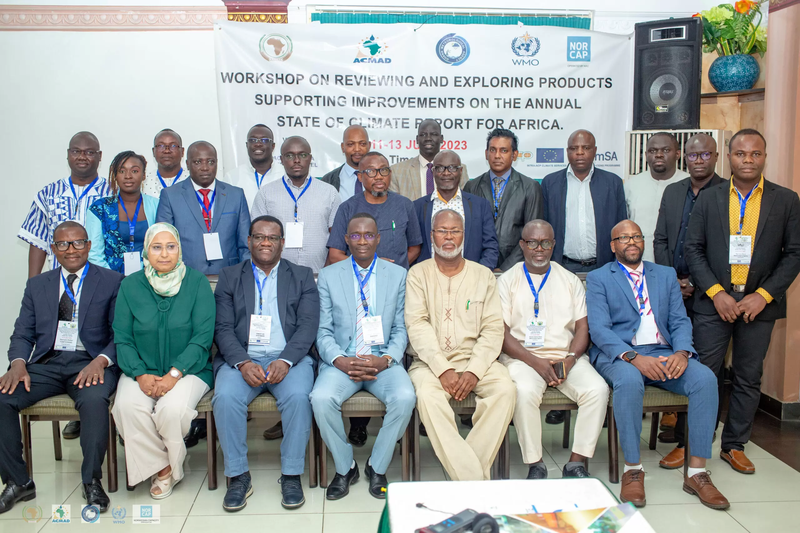GMet Hosts Workshop to Enhance Climate Reporting in Africa

The Ghana Meteorological Agency (GMet) is hosting a workshop to strengthen Africa’s State of Climate (SoC) reports. The opening ceremony, held in Accra yesterday, marked the beginning of discussions among participants to review and explore products supporting improvements in the annual State of the Climate Report for Africa.
The workshop, which GMet is hosting, aims to increase the inclusion of Essential Climate Variables (ECVs), incorporate observed and projected trends, and foster partnerships to improve the accuracy and relevance of Africa’s climate reports. The event aims to address the adverse environmental challenges and impacts faced by the continent, including droughts, floods, high temperatures, and degradation.
During the welcome address, Hon. Isaac Amoo, the Board Chair of GMet, emphasized the significance of climate change as a pressing threat to mankind. He highlighted the unprecedented scale of extreme climate and weather events and their detrimental effects on various sectors such as agriculture, health, and energy. Hon. Amoo underscored the urgent need for action and initiatives that provide policymakers with essential information to mitigate the impact of weather on Africa’s economy.
Mr Eric Asuman, the Acting Director-General of GMet, highlighted the agency’s vision to become the leading meteorological service provider in the sub-region. He introduced an ongoing collaboration with the Danish Meteorological Institute to develop a climate Atlas to improve climate projections. This collaboration involves the recruitment of a representative from the Danish Meteorological Institute, working closely with GMet to achieve this goal. Mr. Asuman emphasized the workshop’s importance in enhancing GMet’s ability to produce state of the climate reports for Ghana, aligning with their mandate to provide meteorological advice to the Ghanaian government.
Recognizing the importance of the workshop, Mr. Asuman emphasized that GMet, as the institution responsible for meteorological advice to the Ghanaian government, aims to produce a state of the climate report for Ghana that aligns with its legislative mandate. He expressed enthusiasm for participating in programs and partnerships, seeking support from organizations such as the World Meteorological Organization (WMO) and the African Centre of Meteorological Applications for Development (ACMAD) to enhance service delivery and socio-economic development in Ghana.
The workshop, organized by ACMAD under the leadership of the WMO and the African Union Commission (AUC) with the support of the EU-funded ClimSA program, which is still ongoing, serves as a platform for participants to engage in discussions on expanding the inclusion of essential climate variables (ECVs), incorporating observed and projected trends and fostering partnerships. The participants, including representatives from the WMO and the ACMAD, actively contribute to the discourse on improving service delivery for socio-economic development in Ghana and the broader African context.
As discussions continue, it is evident that the workshop aims to strengthen Africa’s state of climate reports by equipping policymakers with essential information to mitigate the impact of weather events on various sectors. GMet, along with international partners and development organizations, remains committed to addressing the challenges posed by climate change and working towards sustainable solutions.
(C) GMet Communications

